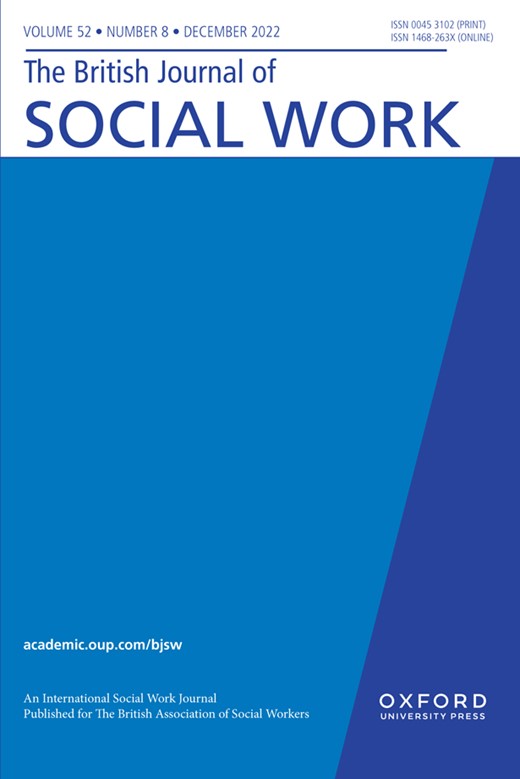-
Views
-
Cite
Cite
Helen E Machin, Steven M Shardlow, The Construction of Character in Social Work Narratives of Practice with Undocumented Migrants, The British Journal of Social Work, Volume 52, Issue 8, December 2022, Pages 5045–5065, https://doi.org/10.1093/bjsw/bcac105
Close - Share Icon Share
Abstract
Undocumented migration is a global phenomenon. Social work practice with undocumented migrants, worldwide, is ethically complex as social workers are positioned between the mandates of the state, designed to deter ‘illegal’ migration and the needs of their undocumented clients. Yet, despite this complexity, the relationship between social workers and their undocumented clients remains largely unexamined. In this article, we draw on interviews with thirteen social workers to analyse how character is constructed in narratives of practice with undocumented migrants. We have used narrative analysis to explore: the relationship between social workers and their undocumented clients; the influence of other key actors and social workers’ constructions of their own practice. We identified three key findings from our analysis: (i) the emergency circumstances in which social workers encounter undocumented migrants made it difficult to establish relationships and consequently, undocumented migrants were weakly drawn in social workers’ narratives; (ii) off-stage actors who existed outside of social workers’ gaze (migrants’ relatives, employers and migrant brokers) exerted power over undocumented migrants and inhibited trusting relationships with professionals and (iii) tension between social workers’ moral claims about undocumented migrants and their personal empathy led to the construction of social workers as characters enmeshed in emotional conflict.




